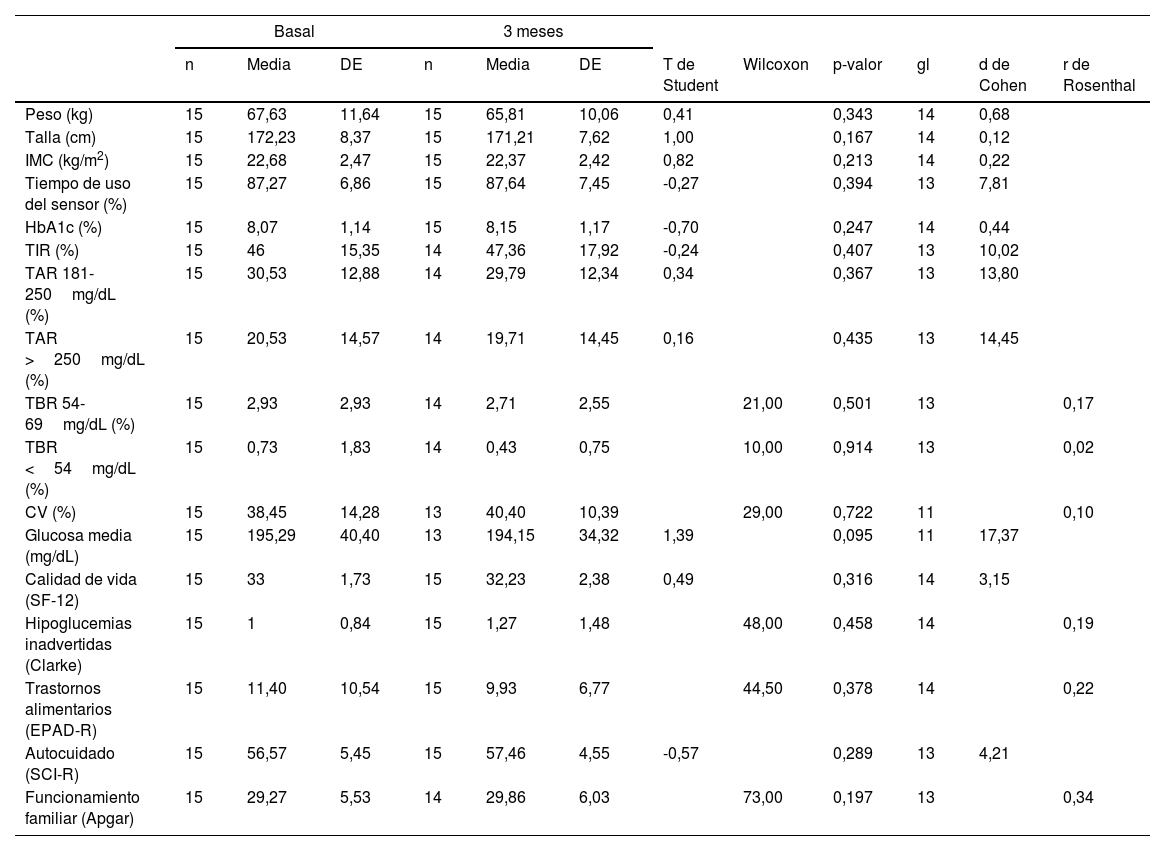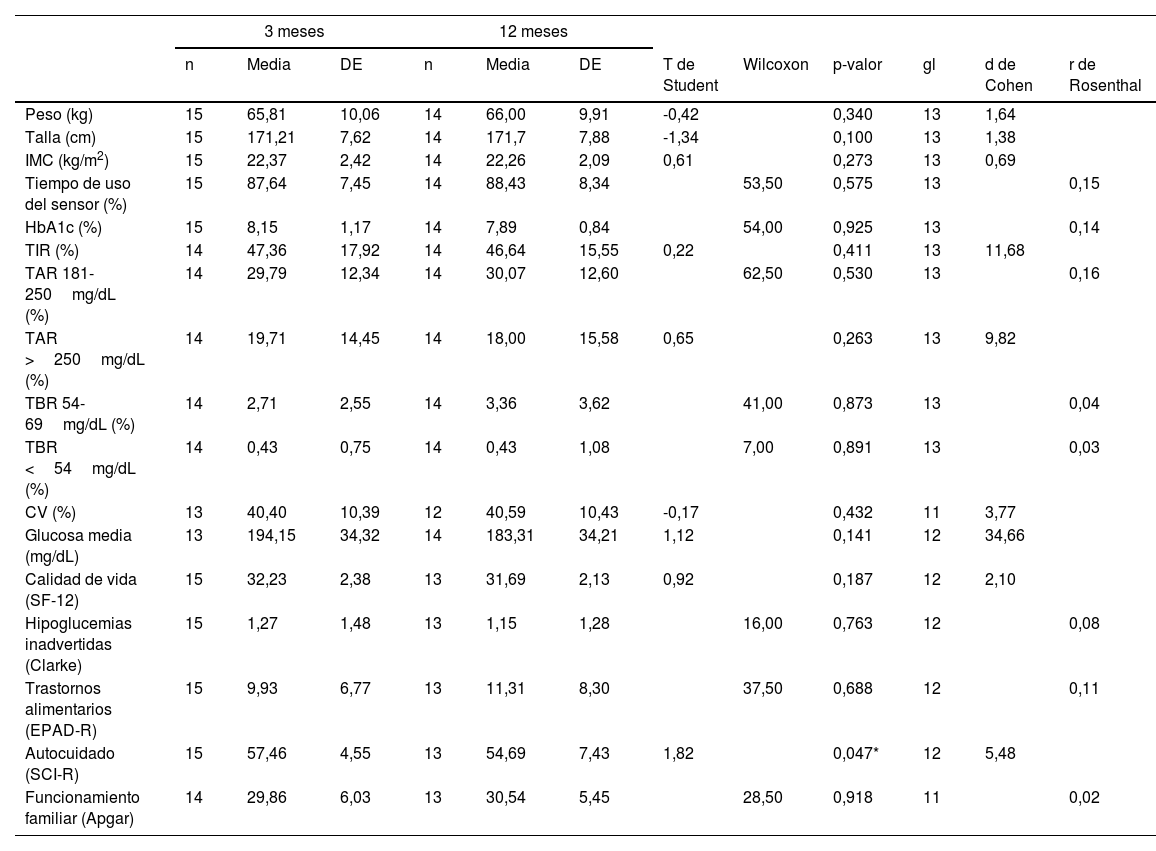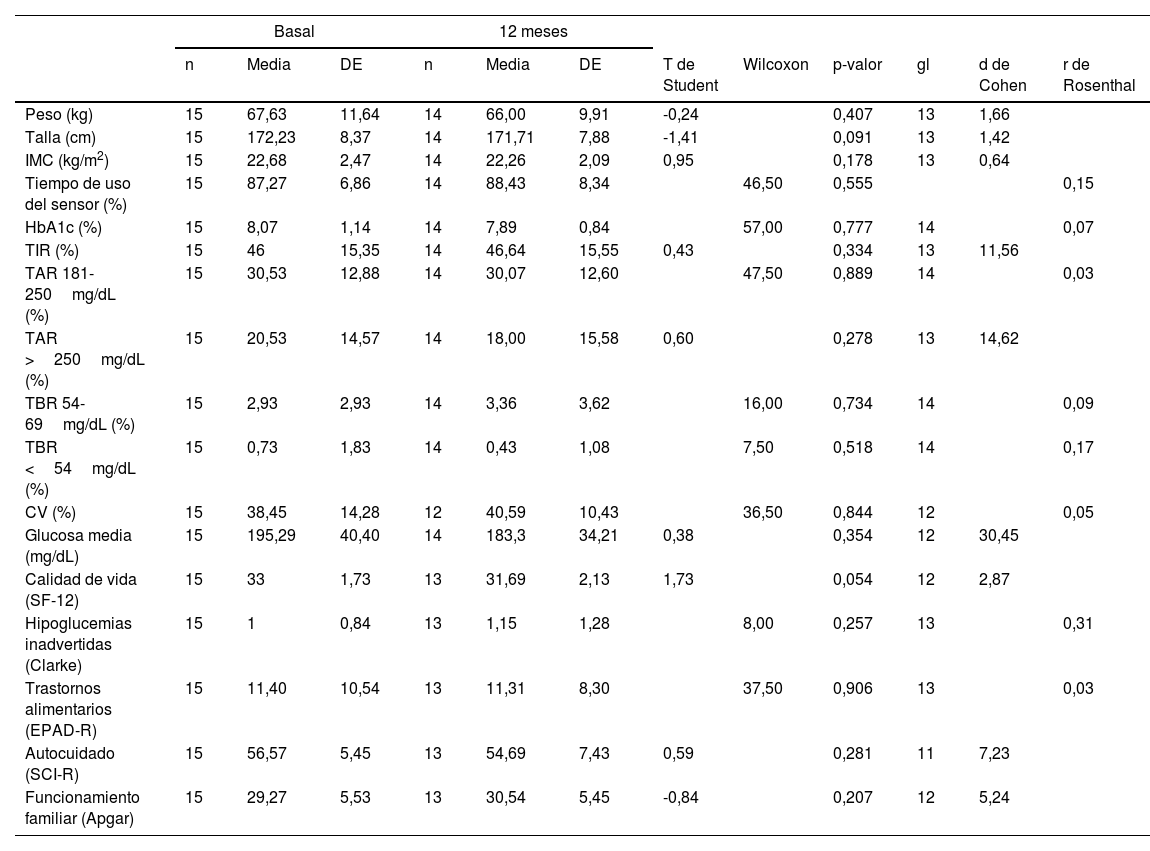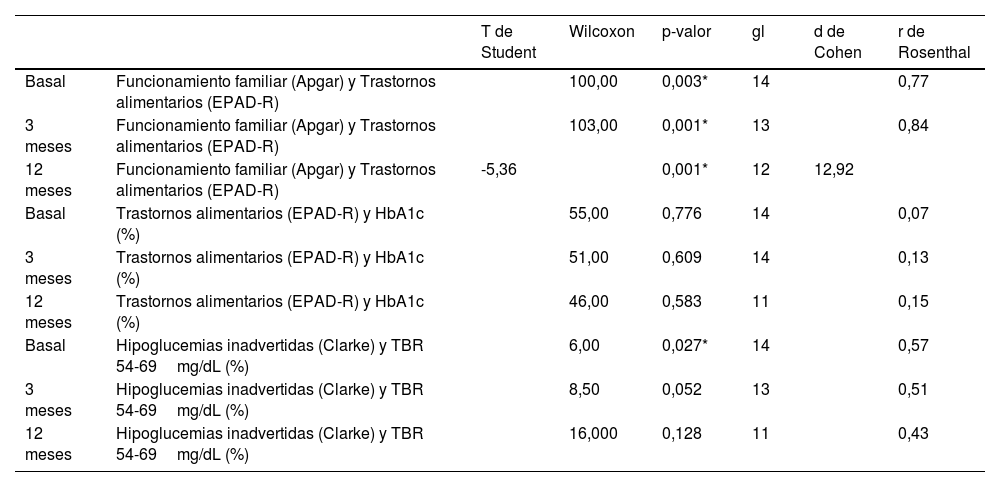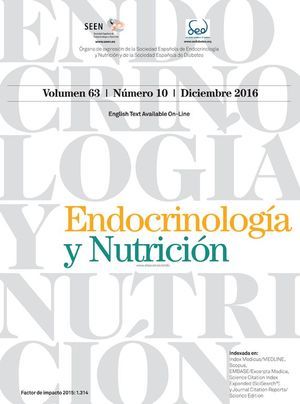La transición de adolescentes desde el hospital infantil al de adultos es un proceso planificado y dirigido que representa un cambio en el enfoque, el estilo y en la ubicación de la atención. Durante este período, es común el inicio de complicaciones en quienes poseen diabetes mellitus de tipo 1 (DMT1). El objetivo del estudio fue conocer la influencia de un programa de educación terapéutica estructurado liderado por enfermeras en el mantenimiento del control glucémico y bienestar emocional de estos adolescentes.
Materiales y métodosEnsayo clínico monocéntrico cuasiexperimental de un solo grupo. Se utilizaron SPSS y R-Commander para el análisis estadístico, incluyendo la prueba t de Student, la prueba de Wilcoxon, d de Cohen, r de Rosenthal y análisis de regresión lineal multivariable.
ResultadosParticiparon 15 adolescentes de 5-17 años de evolución de la DMT1, con un IMC de 18-26,3kg/m2, y todos estaban en tratamiento bolo-basal. No se encontraron diferencias significativas en el control glucémico y el bienestar emocional entre los valores del inicio y a los 3 meses. Se observó una diferencia significativa en el autocuidado a los 12 meses. La función familiar y los trastornos alimenticios se asociaron positivamente al inicio, a los 3 y a los 12 meses.
ConclusionesEl programa estructurado de educación terapéutica dirigido a adolescentes con DMT1 en la transición de la atención pediátrica a la atención en adultos mantiene el control glucémico y el bienestar emocional.
The transition of adolescents from pediatric to adult hospitals is a planned and guided process that involves changes in the focus, style, and location of care. During this period, complications are common in those with type 1 diabetes mellitus (T1DM). The objective of this study was to understand the influence of a nurse-led structured therapeutic education program on maintaining glycemic control and emotional wellbeing in these adolescents.
Materials and methodsMonocentric quasi-experimental clinical trial of a single group. SPSS and R-Commander were used for statistical analysis, including Student's t-test, Wilcoxon test, Cohen's d, Rosenthal's r, and multivariate linear regression analysis.
ResultsA total of 15 adolescents with a 5-to-17-year history of the disease participated in the study. They had a BMI of 18-26.3kg/m2 and were on basal-bolus therapy. No significant differences were found in glycemic control and emotional wellbeing between baseline values and at 3 months. A significant difference in self-care was observed at 12 months. Family function and eating disorders were positively associated at baseline, 3 months, and 12 months.
ConclusionsThe structured therapeutic education program for adolescents with T1DM transitioning from pediatric to adult care maintains glycemic control and emotional wellbeing.







